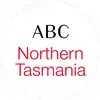Public Live Radio Stations
Radio Stations
- 99.1 KBUU

- ABC Double J (AAC)

- ABC Local Radio 91.7 Northern Tasmania - Launceston, TAS (MP3)

- ABC Local Radio 91.7 Northern Tasmania AAC

- ABC Local Radio 936 Hobart MP3

- ABC Local Radio 936 Hobart AAC

- Antenne Bayern - Event

- Antenne Bayern - Rockantenne

- Antenne ThüringenAntenne Thüringen
- Arte TV (Français)

- Atlantique FM SPM (975) 102.10Atlantique FM SPM (975) 102.10
- Big FM Baden-WürttembergBig FM Baden-Württemberg
- Big FM Rheinland-PfalzBig FM Rheinland-Pfalz
- Caribe FM (Cancún) - 101.9 FM - XHCBJ-FM - SQCS (Sistema Quintanarroense de Comunicación Social) - Cancún, Quintana Roo

- Chetumal FM (Chetumal) - 100.9 FM - XHCHE-FM - SQCS (Sistema Quintanarroense de Comunicación Social) - Chetumal, Quintana Roo

- Ciudadana 660 (Ciudad de México) - 660 AM - XEDTL-AM - IMER - Ciudad de México

- CKXU 88.3 University of Lethbridge, AB

- Deutschlandfunk Dokumente und Debatten

- El Politécnico en radio

- England - Heart London RadioEngland - Heart London Radio
- Frankreich - Radio Contact FM

- Griechenland - Akous Gazi

- Griechenland - AkroamaGriechenland - Akroama
- Griechenland - Aktina RadioGriechenland - Aktina Radio
- Horizonte (Ciudad de México) - 107.9 FM - XHIMR-FM - IMER - Ciudad de México

- Jalisco Radio (AM) (Guadalajara) - 630 AM - XEPBGJ-AM - Gobierno del Estado de Jalisco - Guadalajara, JC

- Jalisco Radio (AM) (Puerto Vallarta) - 1080 AM - XEPBPV-AM - Gobierno del Estado de Jalisco - Puerto Vallarta, JC

- Jalisco Radio (FM) (Ciudad Guzmán) - 107.1 FM - XHCGJ-FM - Gobierno del Estado de Jalisco - Ciudad Guzmán, JCJalisco Radio (FM) (Ciudad Guzmán) - 107.1 FM - XH...
- Jalisco Radio (FM) (Ciudad Guzmán) - 107.1 FM - XHCGJ-FM - Gobierno del Estado de Jalisco - Ciudad Guzmán, JC

- Jalisco Radio (FM) (Guadalajara) - 96.3 FM - XEJB-FM - Gobierno del Estado de Jalisco - Guadalajara, JC

- KBRW 680 AM

- KBRW 91.9 FM - Barrow AlaskaKBRW 91.9 FM - Barrow Alaska
- KBUU-LP 97.5 Malibu, CAKBUU-LP 97.5 Malibu, CA
- KBYU-FM Provo, UT "Classical 89" [MP3]KBYU-FM Provo, UT "Classical 89" [MP3]
- KCPW 88.3 FM Salt Lake City, UT

- KMUW 89.1 Wichita, KSKMUW 89.1 Wichita, KS
- KOPB 91.5 Oregon Public Broadcasting - Portland, OR

- KRCL 90.9 FM Salt Lake City, UT [high]
![KRCL 90.9 FM Salt Lake City, UT [high]](/100/m5d23SovzEgZj0G00JyQx.webp)
- KRCL 90.9 FM Salt Lake City, UT [low]
![KRCL 90.9 FM Salt Lake City, UT [low]](/100/m5d23SovzEgZj0G00JyQx.webp)
- KRPG 89.3 FM Public Radio GuamKRPG 89.3 FM Public Radio Guam
- KUER 90.1 FM/HD1 Salt Lake City, UT (NPR Utah) [high]KUER 90.1 FM/HD1 Salt Lake City, UT (NPR Utah) [hi...
- KUER 90.1 FM/HD1 Salt Lake City, UT (NPR Utah) [low]KUER 90.1 FM/HD1 Salt Lake City, UT (NPR Utah) [lo...
- KUER 90.1 HD2 Salt Lake City, UT (BBC World Service) [high]KUER 90.1 HD2 Salt Lake City, UT (BBC World Servic...
- KUER 90.1 HD2 Salt Lake City, UT (BBC World Service) [low]KUER 90.1 HD2 Salt Lake City, UT (BBC World Servic...
- KUER 90.1 HD3 Salt Lake City, UT (Classical 24) [high]KUER 90.1 HD3 Salt Lake City, UT (Classical 24) [h...
- KUER 90.1 HD3 Salt Lake City, UT (Classical 24) [low]KUER 90.1 HD3 Salt Lake City, UT (Classical 24) [l...
- KUNC

- KUSU 91.5 HD2 Logan, UT "UPR Too"KUSU 91.5 HD2 Logan, UT "UPR Too"
- KXWT 91.3 "West Texas Public Radio" Odessa, TX

- KZFR

Choose a Genre
Public Radio: Informative, Educational, and Culturally Enriching Programming
Public radio stations represent a unique category of radio broadcasting that operates under government or non-profit organizations. Unlike commercial stations, public radio is focused on providing valuable educational, informational, and cultural programming rather than generating profits. This allows these stations to offer a wider range of high-quality, in-depth journalism and content that is not driven by commercial interests.
News and Public Affairs: In-Depth Coverage of the World
One of the most significant genres on public radio is news and public affairs programming. Stations like National Public Radio (NPR) in the United States and the BBC World Service in the United Kingdom are renowned for their thorough coverage of national and international news. These stations provide listeners with in-depth analysis, expert commentary, and discussions on key public policy issues.
Public radio stations often feature interviews with experts across various fields, and many include interactive elements like call-in shows where listeners can ask questions and share their views. This type of programming fosters a well-informed public and encourages active engagement with current affairs.
Cultural Programming: Celebrating Art, Literature, and Music
Another prominent genre in public radio is cultural programming. Stations like Radio France Internationale and CBC Radio in Canada offer a rich mix of content related to the arts, literature, music, and other cultural topics. These stations often feature:
Interviews with artists and writers.
Live performances of classical music, jazz, and folk.
Coverage of cultural events such as film festivals, theater performances, and art exhibitions.
Public radio’s commitment to the arts allows listeners to discover new cultural perspectives and deepen their understanding of global and local cultural traditions.
Educational Programming: Making Learning Accessible
Public radio stations also provide educational content for a wide variety of listeners, from young children to adults. Stations like NPR's "Science Friday" and the BBC's "Discovery" offer accessible and engaging coverage of scientific topics, helping listeners stay informed about the latest in research and technology.
For younger audiences, stations like Radio-Canada's "La soirée est (encore) jeune" mix humor, news, and cultural programming, making learning fun and engaging for a younger demographic. Educational programming on public radio allows listeners to expand their knowledge on a range of topics, from science and history to personal development and the arts.
Specialized Programming for Niche Audiences
In addition to the broad genres of news, culture, and education, public radio stations often provide specialized programming for niche audiences. Some stations, such as KPCC in Los Angeles and WNYC in New York City, focus heavily on local news and community culture, providing valuable coverage that might not be available on commercial stations. Others, like Radio Free Asia and Voice of America, offer news and information in multiple languages, reaching diverse international audiences.
The Value of Public Radio
Overall, public radio stations play an essential role in society by offering programming that is informative, culturally enriching, and educational. These stations provide an alternative to the often sensationalist nature of commercial broadcasting, focusing instead on producing high-quality, well-researched content that contributes to a more informed and engaged public.
Whether you are interested in keeping up with global news, learning about art and culture, or accessing educational content, there is likely a public radio station that offers something for everyone. By prioritizing the public good over commercial interests, public radio stations provide a unique and valuable listening experience that supports a well-informed and engaged community.
Public radio stations represent a unique category of radio broadcasting that operates under government or non-profit organizations. Unlike commercial stations, public radio is focused on providing valuable educational, informational, and cultural programming rather than generating profits. This allows these stations to offer a wider range of high-quality, in-depth journalism and content that is not driven by commercial interests.
News and Public Affairs: In-Depth Coverage of the World
One of the most significant genres on public radio is news and public affairs programming. Stations like National Public Radio (NPR) in the United States and the BBC World Service in the United Kingdom are renowned for their thorough coverage of national and international news. These stations provide listeners with in-depth analysis, expert commentary, and discussions on key public policy issues.
Public radio stations often feature interviews with experts across various fields, and many include interactive elements like call-in shows where listeners can ask questions and share their views. This type of programming fosters a well-informed public and encourages active engagement with current affairs.
Cultural Programming: Celebrating Art, Literature, and Music
Another prominent genre in public radio is cultural programming. Stations like Radio France Internationale and CBC Radio in Canada offer a rich mix of content related to the arts, literature, music, and other cultural topics. These stations often feature:
Interviews with artists and writers.
Live performances of classical music, jazz, and folk.
Coverage of cultural events such as film festivals, theater performances, and art exhibitions.
Public radio’s commitment to the arts allows listeners to discover new cultural perspectives and deepen their understanding of global and local cultural traditions.
Educational Programming: Making Learning Accessible
Public radio stations also provide educational content for a wide variety of listeners, from young children to adults. Stations like NPR's "Science Friday" and the BBC's "Discovery" offer accessible and engaging coverage of scientific topics, helping listeners stay informed about the latest in research and technology.
For younger audiences, stations like Radio-Canada's "La soirée est (encore) jeune" mix humor, news, and cultural programming, making learning fun and engaging for a younger demographic. Educational programming on public radio allows listeners to expand their knowledge on a range of topics, from science and history to personal development and the arts.
Specialized Programming for Niche Audiences
In addition to the broad genres of news, culture, and education, public radio stations often provide specialized programming for niche audiences. Some stations, such as KPCC in Los Angeles and WNYC in New York City, focus heavily on local news and community culture, providing valuable coverage that might not be available on commercial stations. Others, like Radio Free Asia and Voice of America, offer news and information in multiple languages, reaching diverse international audiences.
The Value of Public Radio
Overall, public radio stations play an essential role in society by offering programming that is informative, culturally enriching, and educational. These stations provide an alternative to the often sensationalist nature of commercial broadcasting, focusing instead on producing high-quality, well-researched content that contributes to a more informed and engaged public.
Whether you are interested in keeping up with global news, learning about art and culture, or accessing educational content, there is likely a public radio station that offers something for everyone. By prioritizing the public good over commercial interests, public radio stations provide a unique and valuable listening experience that supports a well-informed and engaged community.